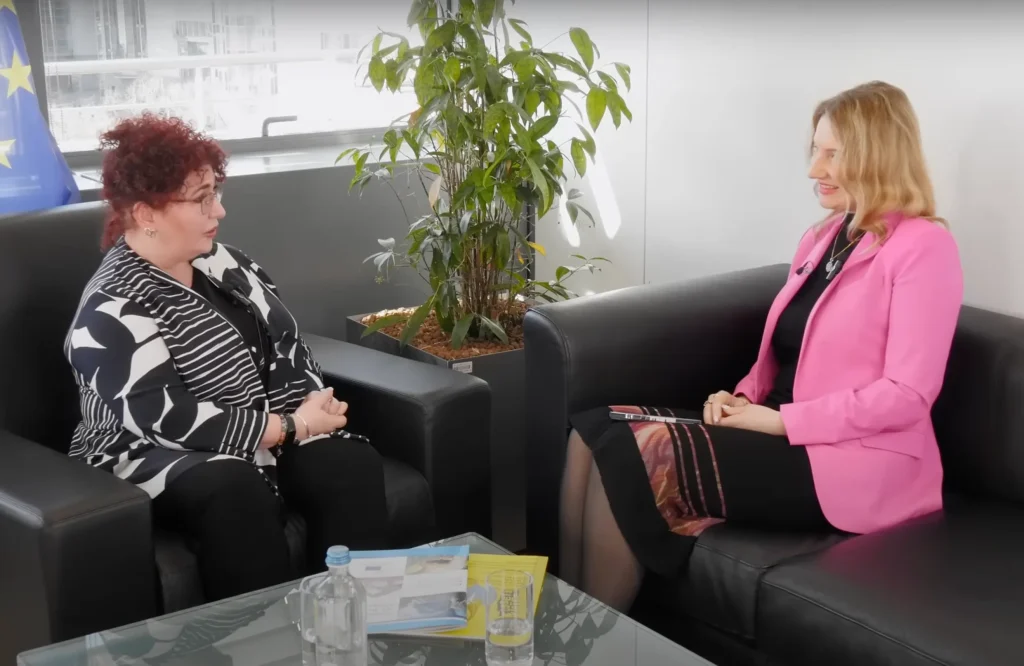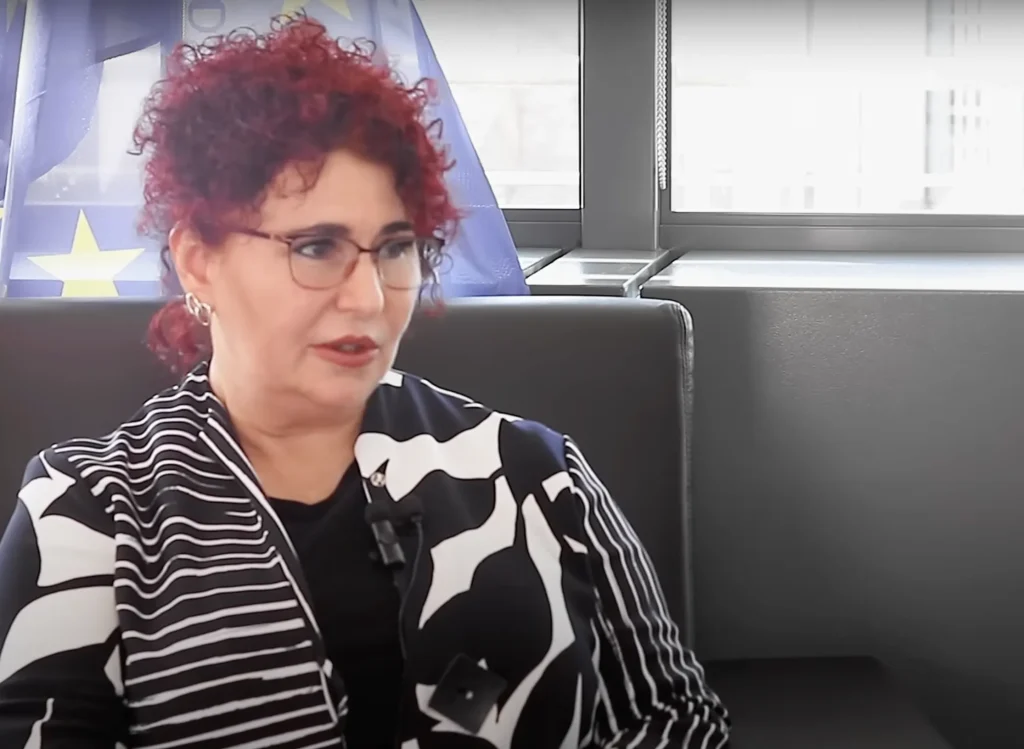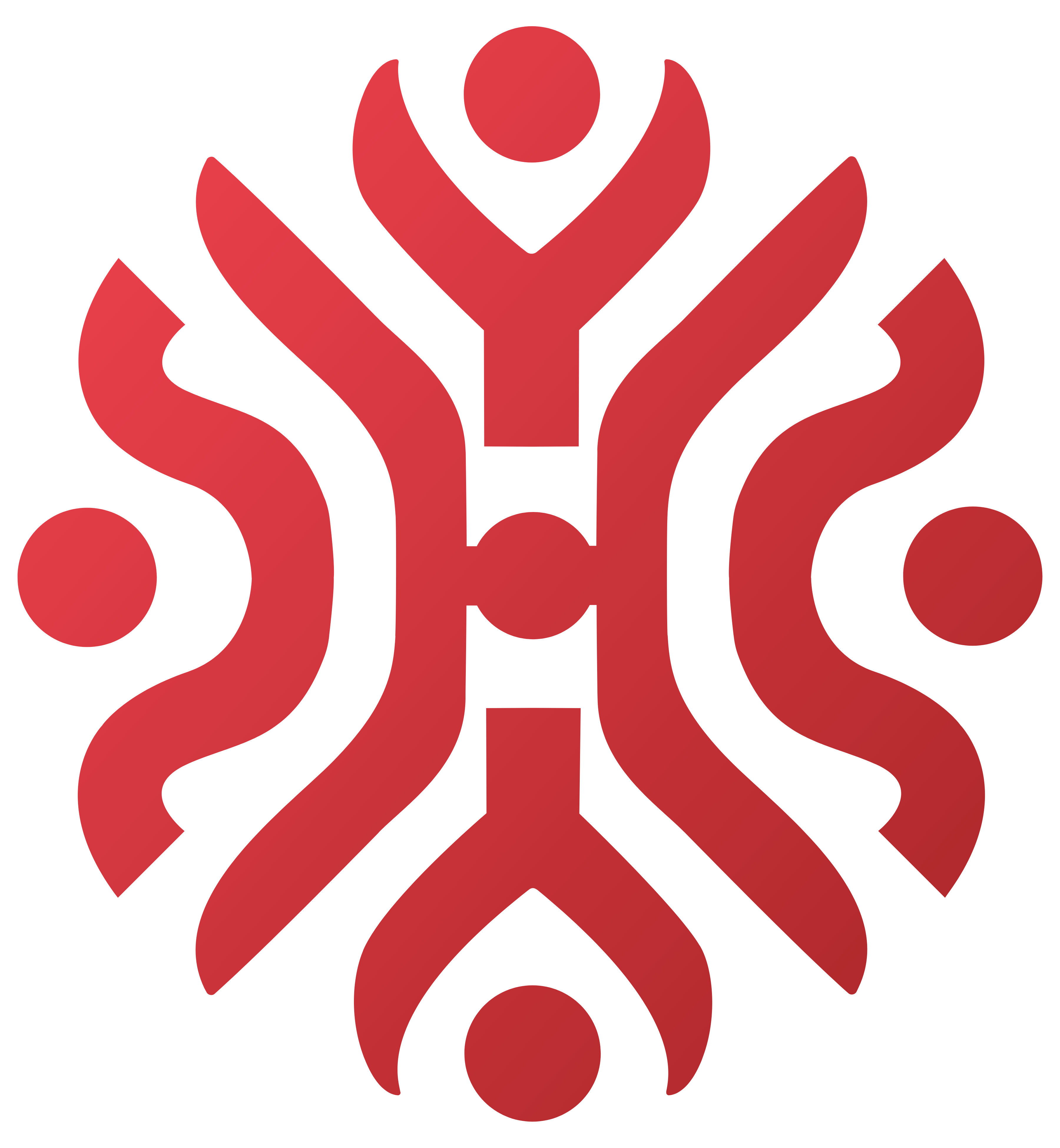
In a time of unprecedented challenges for Ukraine, the European Economic and Social Committee (EESC) stands as a sign of support and solidarity. We had the privilege of speaking with EESC President Christa Schweng about the committee’s efforts to aid Ukraine, the impact of these initiatives, and the vision for a future where Ukraine’s place in the European Union is solidified. Schweng, who has been at the helm of the EESC during some of the most tumultuous periods in recent history, including the COVID-19 pandemic and the ongoing crisis in Ukraine, shares her insights into the power of civil society, the importance of education in defending democracy, and her personal journey in leadership.
Marta Barandiy: President Schweng, could you reflect on the moment you decided to extend support to Ukrainian civil society organizations by providing them with the key to the EESC premises?
Christa Schweng: Certainly. The invasion of Ukraine by Russia on February 24 was a shock to us all. It coincided with the second day of our plenary session, prompting an immediate overhaul of our agenda to focus on how we could support Ukraine. Our immediate action was to adopt a resolution condemning Russia’s aggression in the strongest terms. Handing over the key to Ukrainian civil society organizations symbolized our commitment to maintaining direct lines of communication and support. It was crucial for us to keep the knowledge and contacts alive to understand firsthand what was happening in Ukraine.

Marta Barandiy: Since then, how has the EESC’s support for Ukraine evolved?
Christa Schweng: Our support has been multifaceted, involving not only providing physical space and resources to Ukrainian organizations but also integrating Ukrainian civil society into our sessions and meetings. This inclusion is a testament to our belief in the importance of giving a voice to Ukrainian activists and citizens, emphasizing our strong support for Ukraine’s future within the EU.
Marta Barandiy: How does the EESC function as a bridge between European citizens and the institutions of the EU, especially in the context of crises like the one in Ukraine?
Christa Schweng: The EESC is unique because it comprises employers, workers, and civil society organizations, making it a rich source of diverse perspectives that can inform EU legislation more effectively. In the context of Ukraine, involving organized civil society is crucial, especially as we look towards the reconstruction of the country. Our work in facilitating dialogues and understanding between European and Ukrainian civil societies is a cornerstone of our approach to bridge-building.
Marta Barandiy: Education plays a pivotal role in defending democracy, as you’ve mentioned. How do you see the involvement of citizens in shaping initiatives like the EU’s defense of democracy package?
Christa Schweng: Education is fundamental. It equips people with the critical thinking skills necessary to discern truth from misinformation, a crucial defense against foreign interference and the spread of fake news. Citizens’ involvement is essential for legitimizing and shaping policies that protect our democratic values. Through education and empowerment, we can foster a society that questions, understands, and defends the principles of democracy.
Marta Barandiy: Reflecting on your presidency, what are your hopes for the future, both for yourself and for Ukraine’s relationship with the EU?
Christa Schweng: My hope is for a prosperous, inclusive, and sustainable Europe, one that learns from the challenges of the past to build a stronger future. For Ukraine, I envision a future where it is an integral part of the European Union, sharing our common values and contributing to our shared goals. Personally, I will continue to advocate for European social policy and remain deeply involved in social affairs, leveraging my experience to make a difference wherever I can.
Closing Thoughts
As our conversation with President Schweng concludes, it’s clear that the EESC’s commitment to supporting Ukraine goes beyond mere words. Through action, advocacy, and the powerful tool of education, the EESC plays a pivotal role in shaping a future where democracy is defended, civil society is empowered, and Ukraine’s place in the European community is secured. Schweng’s leadership, marked by empathy, resilience, and a forward-looking vision, serves as an inspiration for all those striving to make a difference in these turbulent times.
Watch the complete interview:
Marta VOOR Europa:





